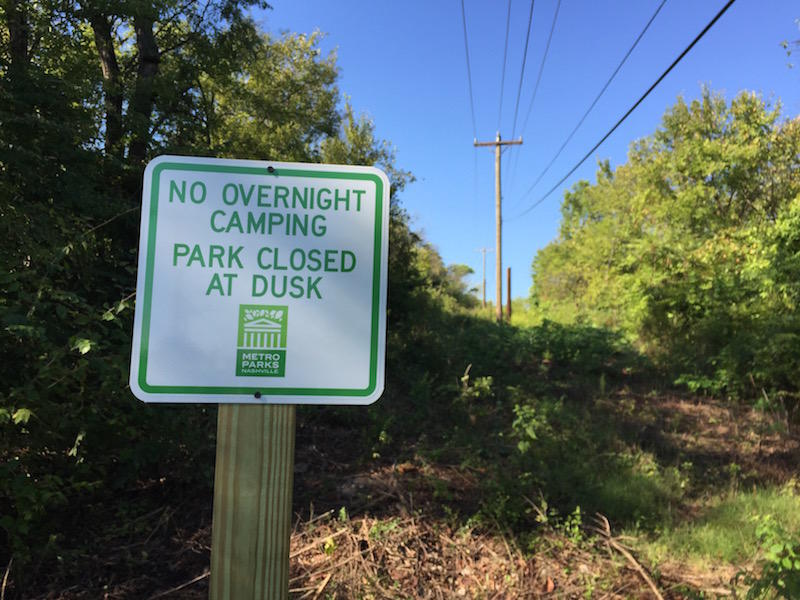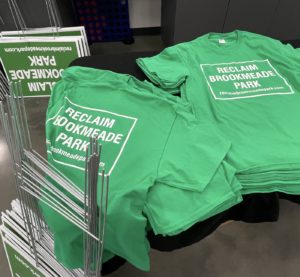
People experiencing homelessness in Tennessee could soon face prison time for sleeping outside.
It’s already illegal to camp on both state and private property at night. Now, a bill that’s close to becoming law would add serious criminal charges for camping on city and county property, too.
 Rebecca Lowe, who lives near Brookmeade Park in West Nashville, has urged lawmakers to pass the bill. She is frustrated that many people without shelter have made her once-beloved wooded space their home.
Rebecca Lowe, who lives near Brookmeade Park in West Nashville, has urged lawmakers to pass the bill. She is frustrated that many people without shelter have made her once-beloved wooded space their home.
Lowe and some of her neighbors created a nonprofit called Reclaim Brookmeade Park, which aims to clean up the green space and connect people staying in encampments with housing and other resources.
The group has also lobbied both local and state legislators for help. At a Senate Judiciary Committee meeting this month, Lowe shared photos of tents and garbage and called the park a “public health fiasco.”
“No one group should exclude another group from a taxpayer-funded facility, whether it’s the state capitol or a city park,” she said. “They’ve literally taken over our park for their exclusive use and kept us from enjoying it for years — years I will never get back.”
The measure updates an existing law, which passed back in 2012 during the Occupy Wall Street movement. Back then, Tennessee made it a misdemeanor to camp on state property.
In 2020, legislators stiffened the penalties. That’s when protesters camped on War Memorial Plaza outside the statehouse for two months straight to protest racism after George Floyd was killed by police in Minneapolis.
Now, the state could strengthen the law once again — this time to expand the list of places where it’s illegal to camp.
“We don’t go to cities’ and counties’ properties, because we don’t have the authority to do that right now,” Tennessee Sheriffs’ Association President Eddie Farris told lawmakers in the committee hearing. “We’re simply asking [for] an extension of the state bill that’s already there to do that on the county and city properties.”
Farris is the sheriff of Putnam County, where the Cookeville mayor started pushing for the new bill last year. Farris said the number of unhoused people in the community has grown recently, and residents have been complaining.
“Staying on the property and destroying it and having other things go on is simply not an option,” he said.
The sheriff says he doesn’t want to arrest people — just to have an opportunity to help them. But the measure would make it a misdemeanor to camp on an interstate exit or under a bridge. It would be a Class E felony to camp on public property between 10 p.m. and 7 a.m. — that means up to six years in prison and a $3,000 fine.
“A felony is a very, very serious offense,” said India Pungarcher with the advocacy group Open Table Nashville.
People convicted of felonies in Tennessee face more than the possibility of fines or prison time. They also lose the right to vote and must jump through hoops to get that right restored. Having a felony on your record also makes it harder to secure a job or housing — which means the legislation could send people right back to an encampment.
“If we want to end or address homelessness in our state, we can’t keep pushing people around,” Pungarcher said. “People have to have a place to exist. And this law does absolutely nothing to address homelessness.”
Gov. Bill Lee has not said publicly if he supports the bill, and a spokesperson says his office is still reviewing it. The governor expressed some hesitations about increasing penalties for camping a couple years ago — but he signed it into law anyway.

